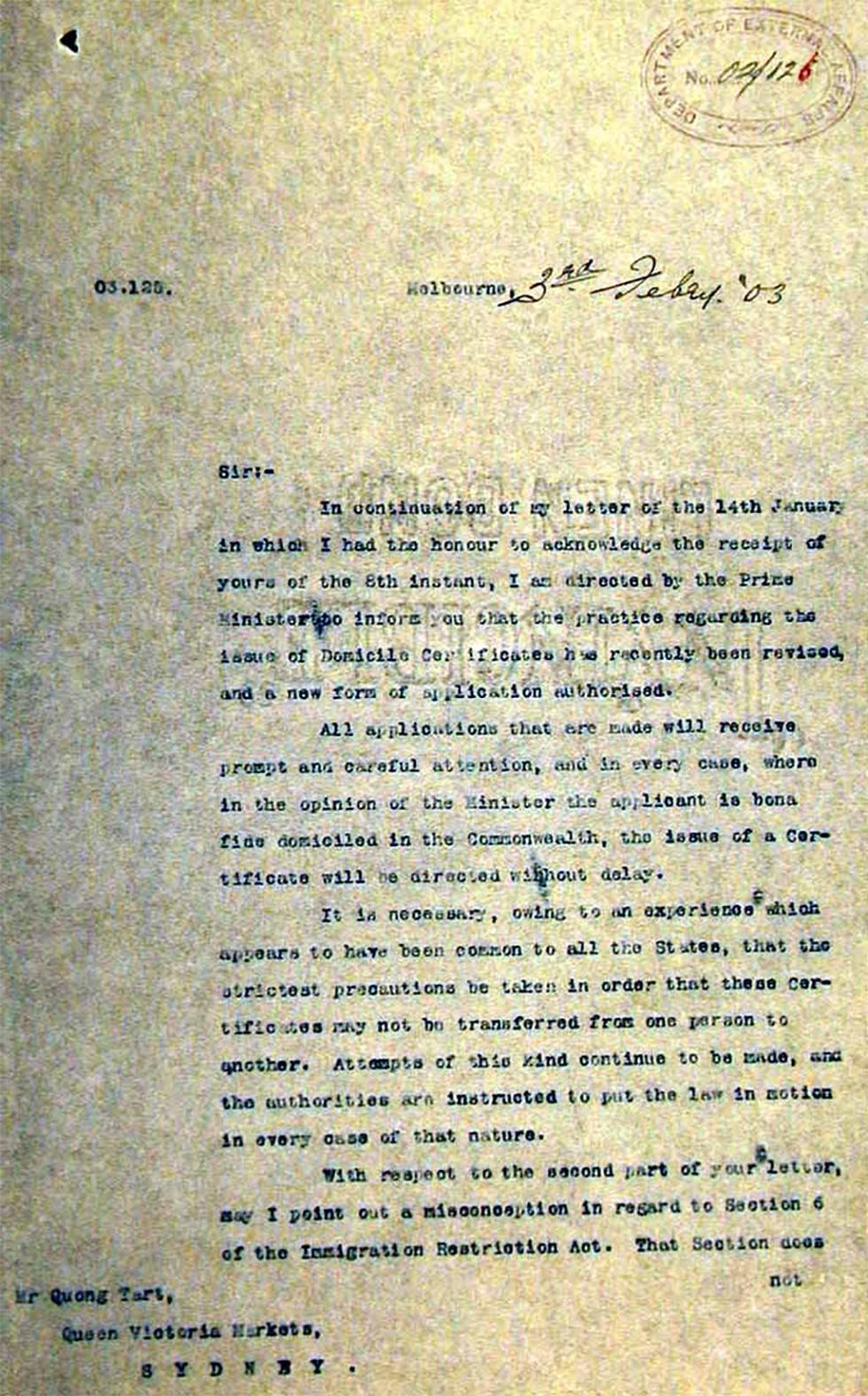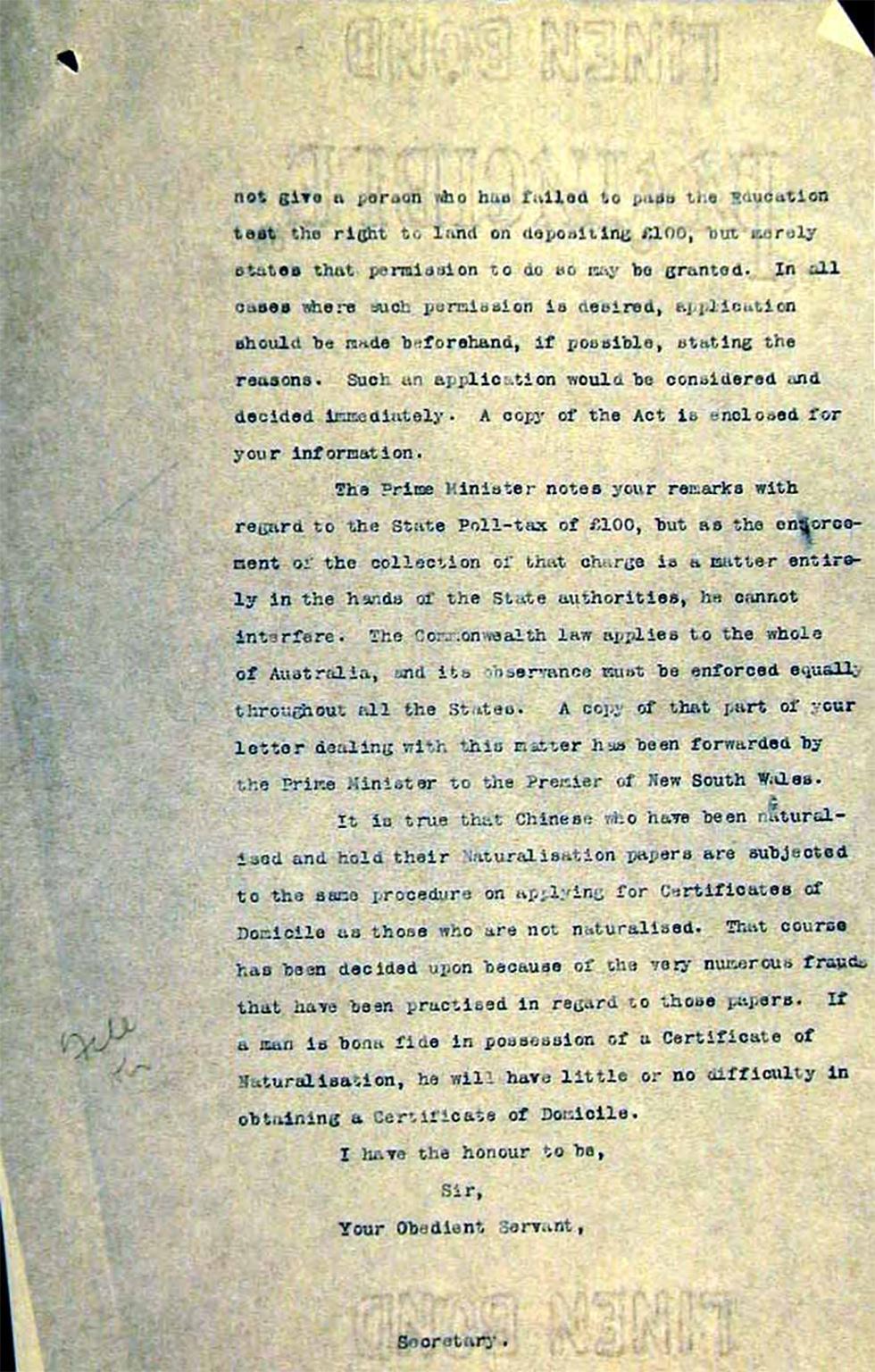
Letter of reply to Quong Tart, regarding the conditions in which a Domocile Certificate is issued.

Letter of reply to Quong Tart, regarding the conditions in which a Domocile Certificate is issued.
Aboriginal and Torres Strait Islander people should be aware that the National Archives' website and collection contain the names, images and voices of people who have died.
Some records include terms and views that are not appropriate today. They reflect the period in which they were created and are not the views of the National Archives.


Letter of reply to Quong Tart, regarding the conditions in which a Domocile Certificate is issued.

Letter of reply to Quong Tart, regarding the conditions in which a Domocile Certificate is issued.
[Page 1]
[Stamp in top right corner in maroon ink reads 'DEPARTMENT OF EXTERNAL AFFAIRS'. Written inside the stamp is 'No. 02/126'.]
03.120
Melbourne. 3rd Febry. [February] ‘03
Sir:-
In continuation of my letter of the 14th of January in which I had the honour to acknowledge the receipt of yours of the 8th instant, I am directed by the Prime Minister to inform you that the practice regarding the issue of Domicile Certificates has recently been revised and a new form of application authorised.
All applications that are made will receive prompt and careful attention, and in every case, where in the opinion of the Minister the application is bona fide domiciled in the Commonwealth, the issue of a Certificate will be directed without delay.
It is necessary, owing to an experience which appears to have been common to all the States, that the strictest precautions be taken in order that these certificates may not be transferred from one person to another. Attempts of this kind continue to be made, and the authorities are instructed to put the law in motion in every case of that nature.
With respect to the second part of your letter, may I point out a misconception in regard to Section 6 of the Immigration Restriction Act. That section does not
[Addressed to:] Mr Quong Tart
Queen Victoria markets
SYDNEY.
[Page 2]
not give a person who has failed to pass the Education test the right to land on depositing £100, but merely states that permission to do so may be granted. In all cases where such permission is desired, application should be made beforehand, if possible, stating the reasons. Such an application would be considered and decided immediately. A copy of the Act is enclosed for your information.
The Prime Minister notes your remarks with regard to the State Poll-tax of £100, but as the enforcement of the collection of that charge is a matter entirely in the hands of the State authorities, he cannot interfere. The Commonwealth law applies to the whole of Australia, and its observance must be enforced equally throughout the States. A copy of that part of your letter dealing with this matter has been forwarded by the Prime Minster to the Premier of New South Wales.
It is true that Chinese who have been naturalised and hold their Naturalisation papers are subjected to the same procedure on applying for Certificates of Domicile as those who are not naturalised. That course has been decided upon because of the very numerous frauds that have been practiced in regard to those papers. If a man is bona fide in possession of a Certificate of Naturalisation, he will have little or no difficulty in obtaining a Certificate of Domicile.
I have the honour to be,
Sir,
Your Obedient Servant,
[Blank space for signature]
Secretary.
Learn how to interpret primary sources, use our collection and more.